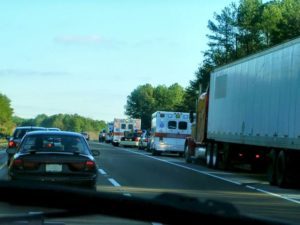 Most car accident lawsuits in Texas primarily target the at-fault driver(s). However, there are some cases in which product liability may result in a lawsuit seeking compensation from a vehicle manufacturer.
Most car accident lawsuits in Texas primarily target the at-fault driver(s). However, there are some cases in which product liability may result in a lawsuit seeking compensation from a vehicle manufacturer.
The fact is, the number of auto recalls in 2015 reached a record high (for the second year in a row), with more than 51 million vehicles being recalled over 868 separate recalls, according to the National Highway Traffic Safety Administration (NHTSA). Part of that stems from the fact that there is a heightened vigilance with regard to the safety of the cars and trucks we drive. In turn, there is a growing awareness and consideration that some accidents are the result not just of driver negligence, but product liability by auto manufacturers.
One such product liability lawsuit out of Texas, Sims v. Kia Motors, was recently weighed by the U.S. Court of Appeals for the Fifth Circuit. Although the plaintiff in this matter did not prevail, it highlights the complexity of these matters, and why it is imperative to entrust these cases only to an injury law firm with ample experience.
According to court records, plaintiffs (decedent’s children and grandchild) alleged he died in the back seat of a vehicle manufactured by defendant after a car accident in Tarrant County (about four hours north of San Antonio). The initial impact caused the car to spin and strike a number of objects – one of those being the immovable base of a yield sign. The “flange” of the sign, which was about 3.25 inches in height, pierced the fuel tank, ripping a large hole in it and causing gasoline to pour into the roadway. The driver and front seat passenger scrambled out of the car. But decedent couldn’t get out – both of the rear doors were stuck. Suddenly, because of the eruption of the fuel tank, the vehicle became engulfed in flames. Decedent was killed in the fire.
Plaintiffs filed a defective automobile product liability lawsuit lawsuit against manufacturer, asserting that auto makers have a duty to take reasonable steps in the design/ making of a vehicle to ensure the gas tank isn’t susceptible to failure in collisions and that if a fire does occur, the car isn’t going to immediately explode and those inside have a chance to get out. Plaintiffs argued defendant did not do this and thus the vehicle was unreasonably dangerous, contributing to decedent’s death.
In order to prove this claim, plaintiffs hired to engineers as expert witnesses.
Defendant first moved to remove the granddaughter as a claimant, a task in which they prevailed because in Texas, grandchildren do not have standing to recover in wrongful death claims.
Secondly, defendant sought to exclude some or all of plaintiffs’ expert testimony. The trial court agreed, finding the testimony was not reliable. Without the benefit of this testimony, plaintiffs could not prove the claims and summary judgment was granted in favor of defendant.
On appeal, plaintiffs argued California law should apply (because California has a regulatory interest in the case because the vehicle was designed in that state, though defendant disputed this). The two states differ with regard to their requirements for product liability cases. California doesn’t require plaintiffs making a claim of defective design to prove there was a safer alternative. Texas does. The federal appellate court ruled that Texas law was applicable and further that the trial court was not wrong to exclude the expert witness testimony because the methodology did not pass the Daubert standards test (in which the trial court, which broad discretion, weighs the reliability of scientific/ expert witness claims).
Although this outcome was disheartening, it does underscore the fact that these cases can be quite complex. If you’re going toe-to-toe with an international corporation, you need to make sure your legal team is up to the task.
Contact our experienced San Antonio car accident lawyers at (210) 308-8811.
Additional Resources:
Sims v. Kia Motors, Oct. 5, 2016, U.S. Court of Appeals for the Fifth Circuit

Recent Comments